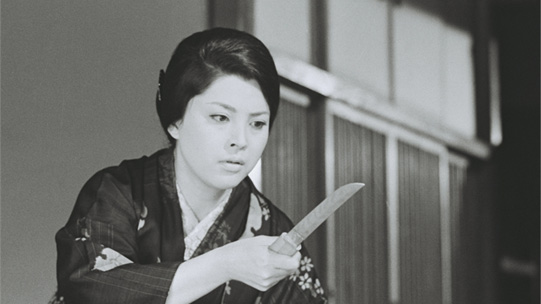In 1970 an article in Cahiers du Cinéma stated: “If we take Eros + Massacre to be an unequivocally political film, it is because it is not satisfied with the pure and simple delivery of a 'political message'.” According to these critics, who tried in their own way to come to terms with the upheavals of that time, it was hardly enough for a film to take a position and transmit a political discourse to make it in itself “political”. What was at stake was the politics of form: how to make a film, in its materiality, part of the struggle, so that the viewer is compelled to engage with it? The semiotico-marxist theories that prompted this view on Eros + Massacre (Erosu purasu Gyakusatsu) may since long have lost their juice, but the film surely hasn’t. On the contrary, in light of the painstaking sterility that seems to have tainted the contemporary landscape of mainstream cinema, its energy and audacity is bound to break some heads. Over the course of its three hours (the long version is even 200'), Yoshida’s film shatters all the barriers between past and present, fact and fiction, theory and practice, coalescing these different dimensions into a radical inquiry of the political and sexual neuroses of late 1960’s Japan. The title of the film gives away an important critical source of inspiration for the film: it alludes to Herbert Marcuse's Eros and Civilization, an attempted synthesis of Marx and Freud which has exerted a great impact on anti-authoritarian movements. Yoshida reflects on the fractured mindset of his generation by looking into the past, more specifically the era of the Russian revolution, a time when the political situation in Japan was still largely un-settled, long before the collapse of the post-war leftist movements. The film intertwines the historical account of Sakae Osugi, an anarchist and Free Love-espouser, with the fictional tale of a handful of young students who themselves also try to reconcile love, erotism and emancipation as insurrectionary forces. The juxtaposition of tragic past and urgent present suggests how political revolt might be driven by a deeper, enigmatic pattern forged by the radical imagination and desire shared by different generations of young revolutionaries.
